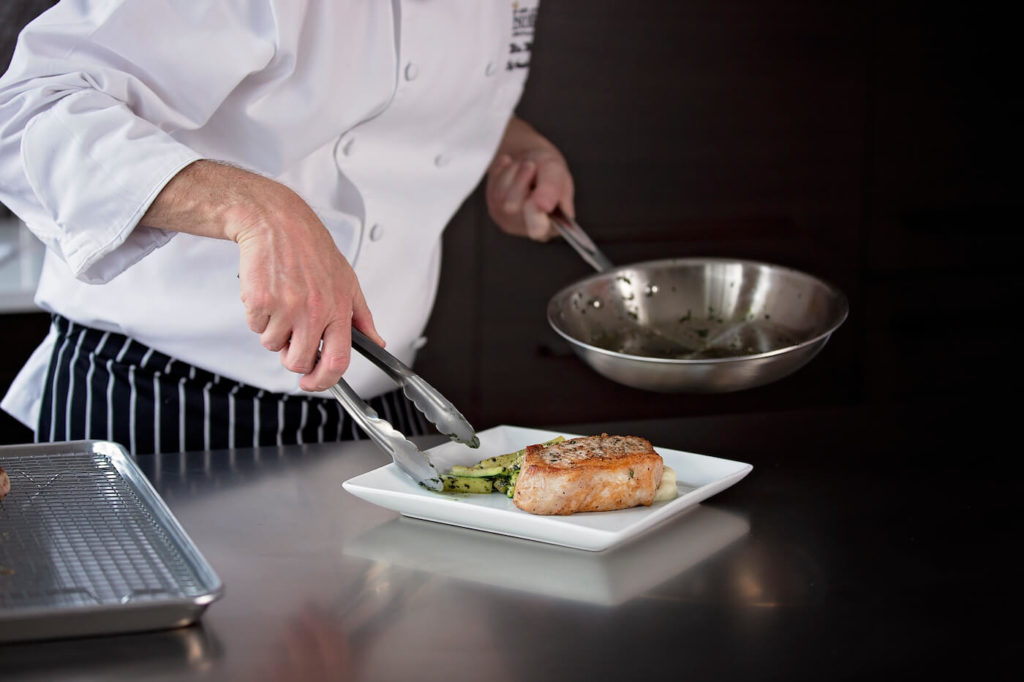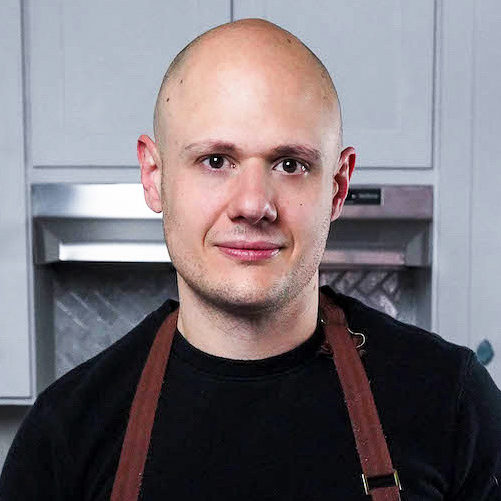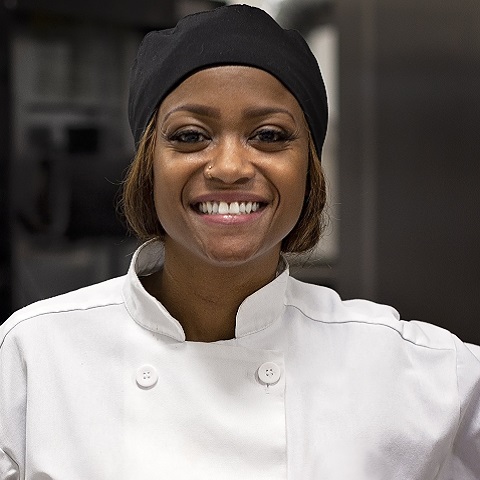Finding qualified employees is always a challenge in the culinary industry. But in the wake of the COVID-19 pandemic, the competition for educated kitchen staff is more fierce than ever. From Virginia to Illinois to Oregon, restaurant owners have the jobs, but no one to fill them!
As of March 2021, restaurant staffing was 16% below pre-coronavirus levels. But things are starting to improve! 43 states added new jobs in February 2021. And while the growth anticipated by the National Restaurant Association to 17.2 million jobs by 2030 may have been slowed, it hasn’t been stopped.
As restaurants reopen, and the industry gets back on its feet, kitchens will be looking to re-staff for the influx of customers that will be returning soon.
Will you have the tools to be a part of the industry’s rebirth?
Culinary School Fills the Biggest Drawer in Your Toolbox
If you imagine all of your culinary knowledge fitting in a toolbox, different skills would live in different places.
In one drawer you might have specialty cooking skills, like making sushi or creating inventive plant-based dishes — skills that you’ll only build if you work in a certain type of restaurant. In another drawer, you may have advanced recipes or whole animal butchery skills.
And in the biggest, most-frequently opened drawer, you’d have many of the skills you build during culinary school. These are your foundational skills — food safety and sanitation, seasoning, cutting and knife skills, measurements, mise en place, plating, world cuisines — the skills you’ll draw on every day.
When you attend culinary school, potential employers will know that you’re coming to them with this drawer partially filled. This isn’t all that students study in school — far from it! But with this knowledge, you can start your career from a place of confidence and possibility, instead of uncertainty and confusion.
“I pursued certifications because I always wanted to be taken seriously and to have a credible voice. I didn’t want to be deniable.”
Escoffier Pastry Chef Instructor and Master Baker Colette Christian
It’s Not All About What You Learn — It’s About the Type of Person Who Gets an Education
Culinary school graduates have a solid foundation of kitchen skills, but there’s still a lot to learn when they get out into the workforce. That’s why there’s more to attending school than the education you’ll receive. It is also an invaluable tool for what it tells others about you.
Attending culinary school shows potential employers that you have a passion for cooking. People who attend culinary school usually plan to make food their career, not just a job. In a high-turnover industry like culinary (75% in 2018, and even higher at fast food restaurants), a potential employee who will be in it for the long haul is extra-desirable. Just by virtue of having that degree or diploma, you tell potential employers that you’re planning to be in this industry long-term.
It also shows that you’re trainable. A culinary school graduate knows how to listen and learn. And there will be plenty more learning to do throughout your career. Plus, a culinary school education can open the doors for a wide variety of future careers. Research Chef Chris McAdams, for example, channelled his education at Auguste Escoffier School of Culinary Arts into a consulting career helping restaurants develop menus, doing product development, and providing culinary training.
“I ended up stumbling upon this career field. I love it, and I’m having a great time in it. So I’m very grateful for the guidance, support, and confidence I got from Escoffier.”
Chris McAdams, Culinary Arts Graduate and Research Chef/Chef Consultant
Culinary School Grads Can Make Great Leaders
As the industry begins to recover, employers will need strong leaders. Where will they find them?
Some will look for the most experienced cooks and chefs they can find. But there aren’t always enough to go around. The next best option? To find dedicated culinarians they can groom for leadership positions. In culinary school at Escoffier, the curriculum includes some coursework in management and communication skills, as well as business planning and budgeting.
Restaurant owners or managers aren’t just hiring to fill the entry-level position they have today. They’re also hiring to be better positioned to keep their line running, or to find an eventual replacement for the sous chef. The management skills you pick up in culinary school can make you a great candidate for future promotion. Culinary school isn’t just working for you now — it’s working for future-you!
“[Escoffier graduates’] self-initiative—and their passion for providing quality food to our customers—allows us to put them into a leadership role very quickly.”
Mary Ann Mathieu, Senior Recruiter, Sodexo
What About On-The-Job Restaurant Training?
Of course, cooks and chefs need real world experience. While they learn many foundational skills and prove their dedication in school, there is more to learn on-the-job. Escoffier students begin this further education with a culinary externship, which is a requirement for all students.
“For my culinary externship, I was able to work at a seafood restaurant that I go to all the time here in Atlanta…The externship put into practice things I learned at Escoffier, and it definitely propelled my knowledge.”
Tiffany Moore, Escoffier Online Culinary Arts Graduate
You may think that when it comes to an entry-level position, employers aren’t so picky. Not always true. Who sounds more appealing — an entry-level employee who has never held a spatula? Or an entry-level employee who knows how to chop and mince, who understands the importance of organization, who has some knowledge of food costs and menu planning, and who wants to make the kitchen their career?
“If somebody goes to culinary school, it shows extra commitment and follow through…it’s a ‘gold star’ on their resume.”
Josh Hasho, Executive Chef, Omni Hotels & Resorts
Position Yourself For Success
With the restaurant and hospitality industries working on a comeback, future cooks and chefs will need every tool at their disposal to be valuable assets to their employers.
You can be a part of the industry’s resurgence. Get a plan that will put you in the right place, with the right credentials, at the right time by getting a culinary education — a tool that works overtime for you.
To learn more about culinary education, read these articles:


 “I pursued certifications because I always wanted to be taken seriously and to have a credible voice. I didn’t want to be deniable.”
“I pursued certifications because I always wanted to be taken seriously and to have a credible voice. I didn’t want to be deniable.”
 “I ended up stumbling upon this career field. I love it, and I’m having a great time in it. So I’m very grateful for the guidance, support, and confidence I got from Escoffier.”
“I ended up stumbling upon this career field. I love it, and I’m having a great time in it. So I’m very grateful for the guidance, support, and confidence I got from Escoffier.”
 “[Escoffier graduates’] self-initiative—and their passion for providing quality food to our customers—allows us to put them into a leadership role very quickly.”
“[Escoffier graduates’] self-initiative—and their passion for providing quality food to our customers—allows us to put them into a leadership role very quickly.” “For my culinary externship, I was able to work at a seafood restaurant that I go to all the time here in Atlanta…The externship put into practice things I learned at Escoffier, and it definitely propelled my knowledge.”
“For my culinary externship, I was able to work at a seafood restaurant that I go to all the time here in Atlanta…The externship put into practice things I learned at Escoffier, and it definitely propelled my knowledge.”